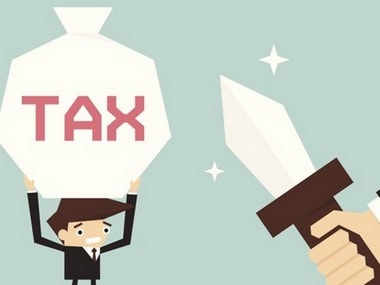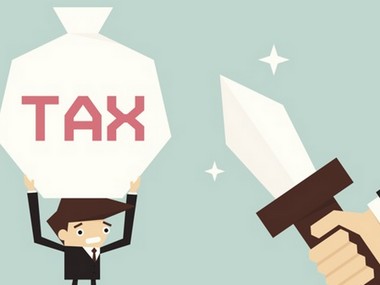With unemployment levels at a record high on the back of a sagging economy, the Narendra Modi government had to do something dramatic to lift the mood of gloom and doom. Finance Minister Nirmala Sitharaman did precisely that by sharply reducing the corporate tax rate for existing companies from 30 percent to 22 percent if they opt not to claim any specified tax benefits and, from 25 percent to 15 percent for companies incorporated after 1st October 2019 provided they are into manufacturing. [caption id=“attachment_5890331” align=“alignleft” width=“380”]  Representational image. Reuters[/caption] While corporates applauded the move initiated vide an ordinance promulgated on 20 September 2019, there was criticism too, some muted and some loud. Corporates have greater financial strength, went one argument, and ergo the weaker middle class’ concerns should have been addressed first. Another argument was it wasn’t the tax rate as much as the non-conducive investment climate that needed to be set right. Weak demand indeed was the cause behind unsold automobiles and other goods. So the Finance Minister ought to have put more money into consumers’ pockets was the leitmotif of the criticism. In the upcoming Budget 2020-21 to be presented on 1 February 2020, Finance Minister Nirmala Sitharaman cannot hem and haw while conferring wholesome tax benefits to the salaried class after having showered confetti on the corporates. She might as well redeem the promise made by Prime Minister Narendra Modi as far back as in the run-up to the 2014 Lok Sabha elections that should he succeed in retrieving the loot stashed away abroad, he would share a sliver of it with the salaried class for its clean tax track record. Well, the loot might have not been retrieved but substantial relief to the salaried class brooks no delay. The one-size-fits-all standard deduction of Rs 40,000 from salary needs to be upped to a third of the salary or Rs 1 lakh whichever is less. Remember the then Finance Minister Arun Jaitley had brought back standard deduction in lieu of transport allowance exempt up to Rs 19,200 per annum and non-hospitalisation medical reimbursements by employers up to Rs 15,000 per annum. That was the meanest cut. There is a case for an ungrudging and unconditional standard deduction in computing salary income if only to partially compensate the salaried class for the absence of leg-room in booking expenses to reduce their income, the latitude available to their business and professional counterparts in ample measure.
When a professional with a turnover of Rs 50 lakh or less can be allowed a standard deduction of 50 percent and taxed only on the balance under the presumptive taxation scheme obtaining for them, there is no reason why the salaried people must be fobbed off with a pittance.
Wrenching away the exemption from tax of non-hospitalisation medical expenses was a cruel blow besides being insensitive to employees taking care of their parents who often have to pop up pills every day without being admitted to a hospital. Remember India has the dubious distinction of being the diabetic capital of the world. Pills and insulin shots are self-administered at home. The point is hospitalisation should neither be made a fetish nor insisted upon as a precondition for tax exemption. To prevent abuse of non-hospital bill reimbursement, an annual examination at approved hospitals in which the government has trust can be insisted upon. The Finance Minister should while restoring this exemption, hike the ridiculously low limit of Rs 15,000 generously that existed. The need for heightened savings is all the more now that the Finance Minister is banking on a massive Rs 102 lakh infrastructure push to revive the economy. The tax benefits for investments in infrastructure bonds must, therefore, stage a comeback with a vengeance. The government must be indifferent to tax sacrifice as long as it is more than offset by funds mobilised for infrastructure projects. And yes, do not forget the massive hoard of gold in the country guesstimated to be close to a whopping 20,000 metric tonnes. Spare capital gains from the sale of gold from tax on the condition that they would be parked in infrastructure bonds of long duration. The tax slab rates are in need of urgent reforms. Contrary to the popular perception, they are not as high as they are steep—5 percent, 20 percent and 30 percent—encouraging splitting and splintering of income so as to take refuge under the most hospitable bracket. But that is a long-term project. In the immediate run what is possible is bringing an intermediary slab, Rs 10 lakh to Rs 20 lakh, and taxing it at 25 percent. Only income in excess of Rs 20 lac should be taxed at 30 percent. (The author is a senior columnist and tweets @smurlidharan) Follow full coverage of Union Budget 2020-21 here


)
)
)
)
)
)
)
)
)



